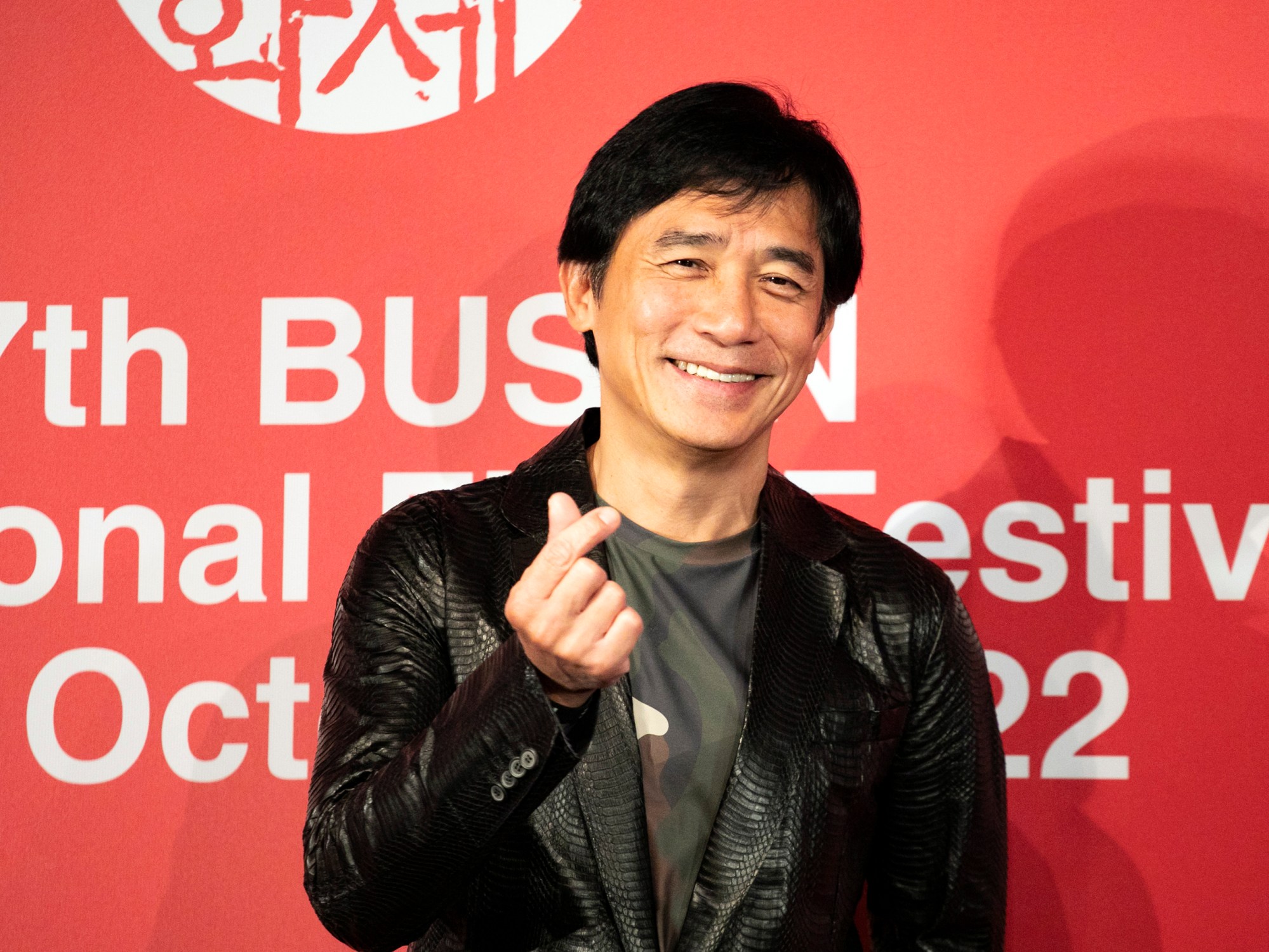
- Festivals
Tony Leung Awarded the Asian Filmmaker of the Year at Busan International Film Festival
At the 27th Busan International Film Festival, Tony Leung, an actor and singer from Hong Kong, was presented with the Asian Filmmaker of the Year Award. The award has been given out since the festival’s eighth edition in 2003 to filmmakers and organizations who have supported the development of the Asian film industry and culture throughout the year. Iranian director Mohsen Makhmalbaf received the prize for the inaugural year; since then, it has also been given to Taiwanese filmmakers Hou Hsiao-hsien and Edward Yang, Hong Kong actor Andy Lau, Japanese musician Ryuichi Sakamoto, Japanese director Hirokazu Kore-eda, and others.
Yeri Han, the lead actress in Minari (2020), delivered a poem while Leung was honored and awarded a trophy.
The 40th anniversary of Tony Leung’s acting career and the fact that he not only popularized Hong Kong film around the world but also had his Hollywood debut in 2021 with Shang-Chi and the Legend of the Ten Rings were two factors in his receiving the award. After being given the distinction, Leung stated: “I am incredibly proud to have won this award. Every time I visit the Busan International Film Festival, which I have done numerous times, I see many changes. The beaches in Busan have been nicely built, the city has undergone modernization, and more media outlets are covering the festival. The opening ceremony this year was very lovely and magnificent, “He remarked.
There was a retrospective screening of films Leung personally chose to commemorate the award. The six films were The Eagle Shooting Heroes (1993) by Jeffrey Lau, The Longest Night (1998) by Patrick Yau and Johnnie To, and Infernal Affairs (2002) by Andrew Lau, which Martin Scorsese adapted into the English language film, The Departed. Scorsese won the Best Director Motion Picture at 64th Golden Globe Awards in 2007. Also included the Hong Kong actor’s most frequent collaborator, Won Ka Wai’s three films: Happy Together (1997), In the Mood for Love (2000), and 2046 (2004).
He played a villain in “Shang-Chi and the Legend of the Ten Rings,” which he acknowledges as a challenge for him in his 40-year career.
“When I was offered the role of the father in Shang-Chi and the Legend of the Ten Rings, I envisioned the worst kind of villain, but when I read the script, it didn’t go that far. Every actor wants to play all kinds of roles. I have played many interesting roles, but not many villains. I would like to play a role with a complex background that would make the audience think about it in different ways. Personally, I am interested in playing a serial killer, inspired by a movie I recently saw”.
“Shang-Chi was created in a highly confidential manner. I was directly contacted by the director, Destin Daniel Cretton, and was motivated to join the cast by his excitement. I always want as many people as possible to watch my movies as an actor. I never would have guessed ten years ago that I would be able to portray the role of a father, but I also believed that I might improve my performance by taking this chance”.
Leung also stated that if he had to split his acting career into two phases, the first phase would be a learning phase, and the second phase would be an enjoying phase.
“I am eager to take on additional roles since I can now play a range of characters that I previously would not have been able to”.
Leung’s next challenge is reportedly an English-language drama series.
“I started out as a drama actor, so I would love to go back to starring in dramas. As long as there is a project, I would love to go anywhere and play a role, whether it is in Korea, Japan, or Taiwan,” he said in a big smile.

